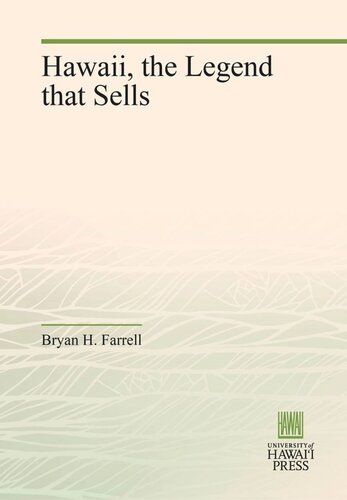

Most ebook files are in PDF format, so you can easily read them using various software such as Foxit Reader or directly on the Google Chrome browser.
Some ebook files are released by publishers in other formats such as .awz, .mobi, .epub, .fb2, etc. You may need to install specific software to read these formats on mobile/PC, such as Calibre.
Please read the tutorial at this link: https://ebookbell.com/faq
We offer FREE conversion to the popular formats you request; however, this may take some time. Therefore, right after payment, please email us, and we will try to provide the service as quickly as possible.
For some exceptional file formats or broken links (if any), please refrain from opening any disputes. Instead, email us first, and we will try to assist within a maximum of 6 hours.
EbookBell Team

4.4
72 reviewsThis the first full study of Hawaii tourism and one of only a few studies anywhere that view tourism fully in social, economic, psychological, and environmental terms. While remaining unaffiliated with any particular faction, Dr. Farrell sees changes in the industry: an increased emphasis on quality, greater public involvement in industry decision making, better public and industry awareness, and a marked reorientation from domestic to international tourism. But he also warns of the dire results of moving in certain undesirable directions.
What occurred in Hawaii provides a model for other places, especially developing countries. It illustrates both domestic and international tourism, benefits and costs, amity and frustration, interaction of hosts and guests, and, if not the way certain problems may be avoided, those problems which should not be allowed to develop.
This book will be important for concerned residents of Hawaii, inveterate travelers or investors, the curious who wish to go beyond the travel poster, politicians who want to make the best decisions, activists who wish to see how the industry really operates, busy tourism industry managers who wish to widen their vistas, students of tourism, and the residents of developing countries who can then better decide whether tourism is the direction in which they want their countries to go.